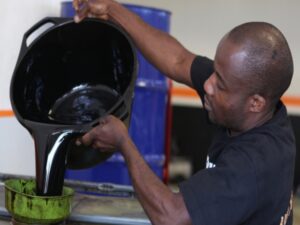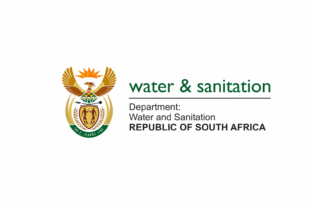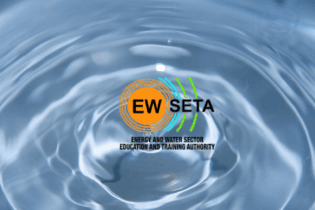Speaking at the 2022 World Environment Day global campaign, “#OnlyOneEarth”, CEO of ROSE Foundation Bubele Nyiba said the initiative calls for transformative changes to policies and choices to enable cleaner, greener, and sustainable living in harmony with nature.
“Waste management of a wide range of products is a key component in achieving the goal of a healthy environment. In South Africa, the government is implementing stringent waste management legislation across various sectors, utilising Section 18 of the National Waste Management Act, a section that deals with Extended Producer Responsibility (EPR),” Nyiba said. In 2020, the government published Extended Producer Responsibility Regulations, and Notices for the producers in the in electric and electronics, lighting, packaging, and single-use plastics industries to implement EPR. Most recently, the government has also issued Notices to implement EPR in the lubricants, pesticides, and battery industries. “The lubricants industry welcomes the introduction of legislation to enforce EPR. Our industry has been implementing EPR since 1994, when we took a proactive stance to mitigate the potential harmful effects of oil on the environment by establishing a voluntary extended producer responsibility scheme, through the establishment of the ROSE Foundation. The purpose of the organisation is, to promote the common interests of the oil industry to prevent the pollution of the environment by used lubricants in South Africa,” Nyiba said. Used lubricating oil is classified as hazardous waste, as used oil and grease from vehicles and machinery contain three types of dangerous pollutants, polynuclear aromatic hydrocarbons (PAHs), heavy metals and lubrication additives. These hazardous pollutants are generated through the use of oil as a lubricant in motor vehicles and in industrial operations. If used oil is irresponsibly disposed of into landfills, down drains or onto the ground, it can leach into wetlands, and rivers, where it can pollute the water and have serious environmental effects on marine and freshwater organisms and human health. “The ROSE Foundation is strongly aligned to the United Nations Sustainable Developmental Goals (SDGs), especially Goal 6, which is to ensure availability and sustainable management of water and sanitation for all and Goal 7, which is to ensure access to affordable, reliable, sustainable and modern energy for all,” said Nyiba.From large industries to individual backyard mechanics, generators of used oil have a legal duty to store and recycle used oil responsibly to protect the environment in South Africa. The disposal of used oil is strictly governed by environmental laws and its storage and disposal have to meet the requirements of the National Environmental Management: Waste Act No. 59 of 2008.
Largely used oil generators should store used oil safely for collection by a ROSE Foundation accredited oil collectors, who will issue the generators with safe disposal certificates, as required by the Waste Act. Nyiba said, “when used oil is recycled in South Africa, it is usually partially reprocessed to remove particulates and is sold as an industrial burner fuel. In some instances, it is being re-refined back to base oil, but this is a costly process to establish, and the demand for burner fuel is still dictating the economics of recycling.” Over 3 billion people globally, rely on dirty fuels and animal waste for cooking and heating. Burner fuel from used oil is the second cheapest source of energy for industrial purposes, with coal being the cheapest. However, used oil as a burner fuel contributes to CO2 emissions into the environment, so the ROSE Foundation is advocating the use of scrubbers by industries that burn fuel, to mitigate carbon dioxide emissions. Scrubbers are air pollution control devices that use liquid to remove particulate matter or gases from an industrial exhaust or flue gas stream. The use of scrubbers significantly reduces emissions of sulphur and nitrogen oxides, toxic stable organic chemicals, mercury and particulates. The safe disposal of hazardous waste has become a critical issue, South Africa needs to manage in order to protect our environment. Responsible waste management is no longer a nice thing to do but a necessary thing to do.







